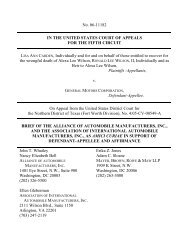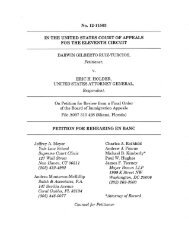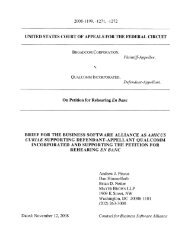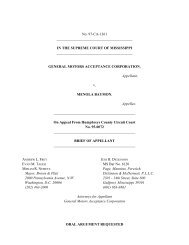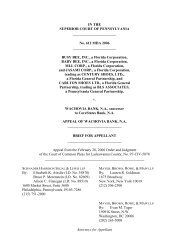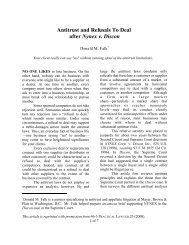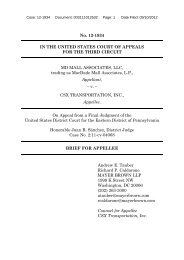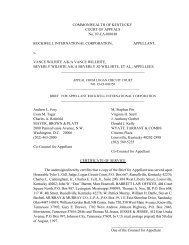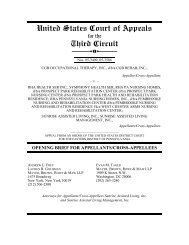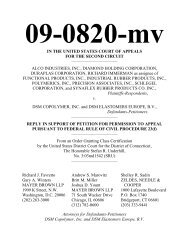No. 5-99-0830 IN THE APPELLATE COURT OF ... - Appellate.net
No. 5-99-0830 IN THE APPELLATE COURT OF ... - Appellate.net
No. 5-99-0830 IN THE APPELLATE COURT OF ... - Appellate.net
Create successful ePaper yourself
Turn your PDF publications into a flip-book with our unique Google optimized e-Paper software.
See, e.g., Jones v. State Farm Mut. Auto. Ins. Co., 289 Ill.App.3d 903, 918 (1st Dist. 1<strong>99</strong>7);<br />
Allen v. State Farm Mut. Auto. Ins. Co., 214 Ill.App.3d 729, 738-39 (1st Dist. 1<strong>99</strong>1). The<br />
circuit court did not dispute this basic proposition, but nevertheless ignored all variations in<br />
state laws on the ground that contract law was consistent nationwide and that there was<br />
therefore no “true conflict” requiring application of other states’ laws. That decision was<br />
wrong as a matter of law.<br />
The relevant state laws differ in a number of important respects which made it<br />
impossible to achieve a single, uniform interpretation of even facially identical State Farm<br />
policies. For example, at least 13 states have specific statutes or regulations governing the<br />
key legal question raised by this case: what quality standards must be met before an<br />
insurance company may properly specify a non-OEM part in a repair estimate. See note 3,<br />
supra. Those statutory provisions are controlling for repairs ordered in those states,<br />
providing a statutory gloss, which differs from state to state, on the meaning of both “like<br />
kind and quality” and “pre-loss condition.” See Boyd v. Madison Mut. Ins. Co., 146<br />
Ill.App.3d 420, 424-25 (5th Dist. 1986) (“As with any other type of contract, statutory<br />
provisions applicable to insurance policies which are in effect at the time the policy is issued<br />
or renewed are treated as part of the agreement”), aff’d, 116 Ill.2d 305 (1987).<br />
In addition, apart from statutory quality standards, a large number of states expressly<br />
allow insurance companies to specify non-OEM parts subject to certain disclosure and/or<br />
consent requirements. See notes 1-4, supra. As noted above, two states, Massachusetts and<br />
Hawaii, have sought to hold down the cost of insurance by effectively requiring an insurance<br />
company to specify non-OEM parts when “like kind and quality” parts are available. See<br />
-56-



